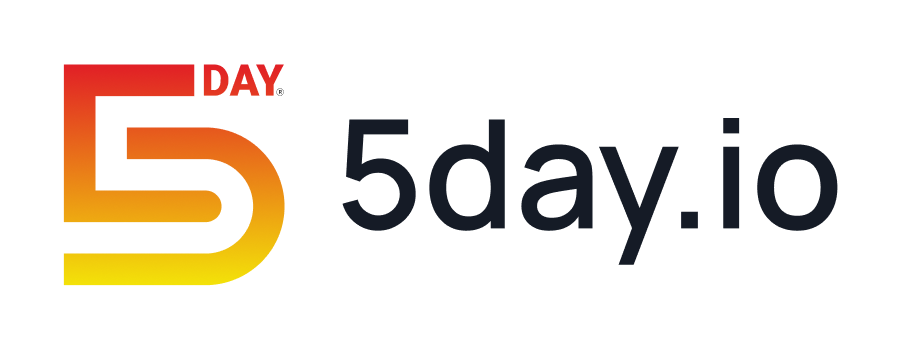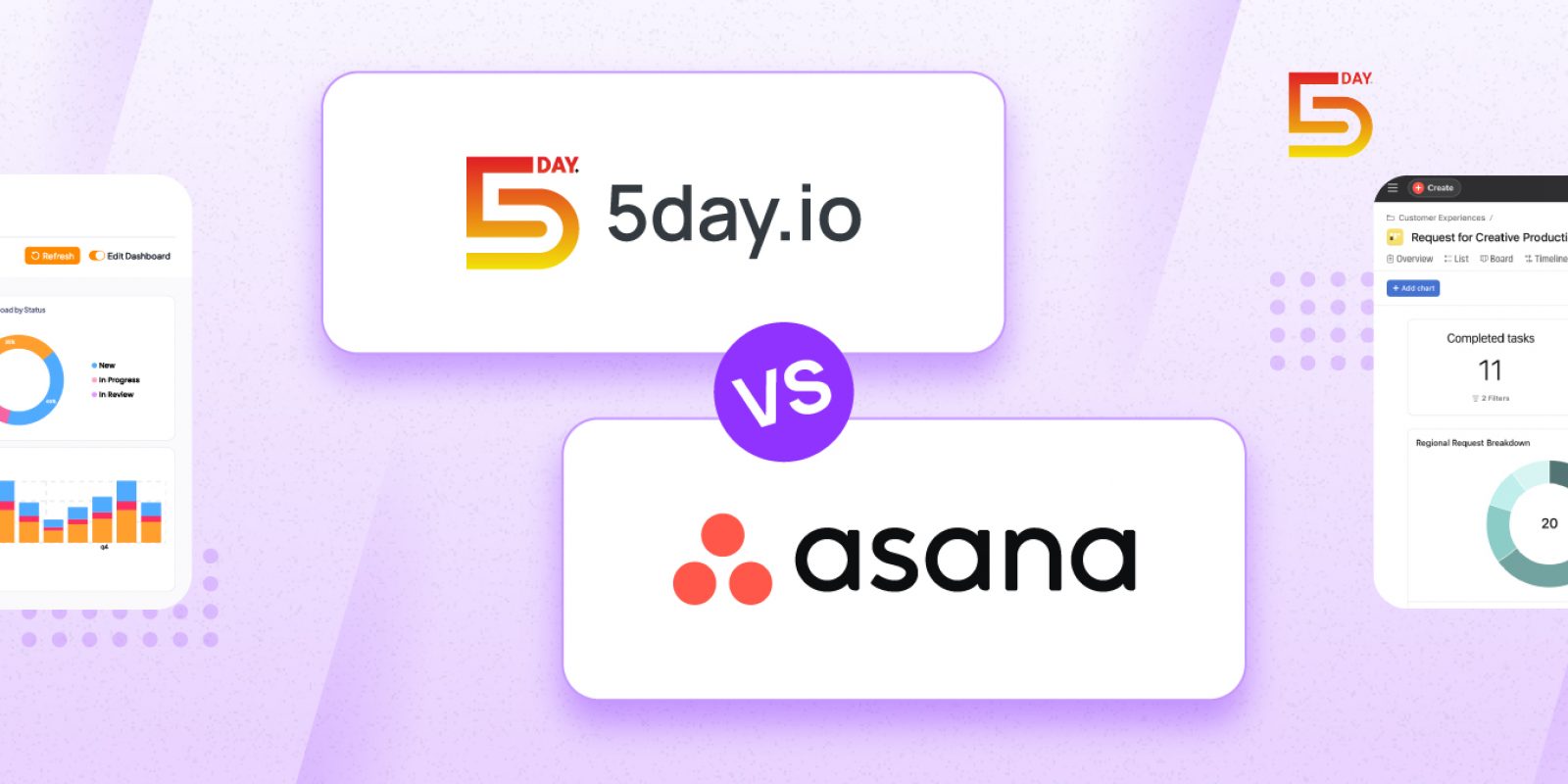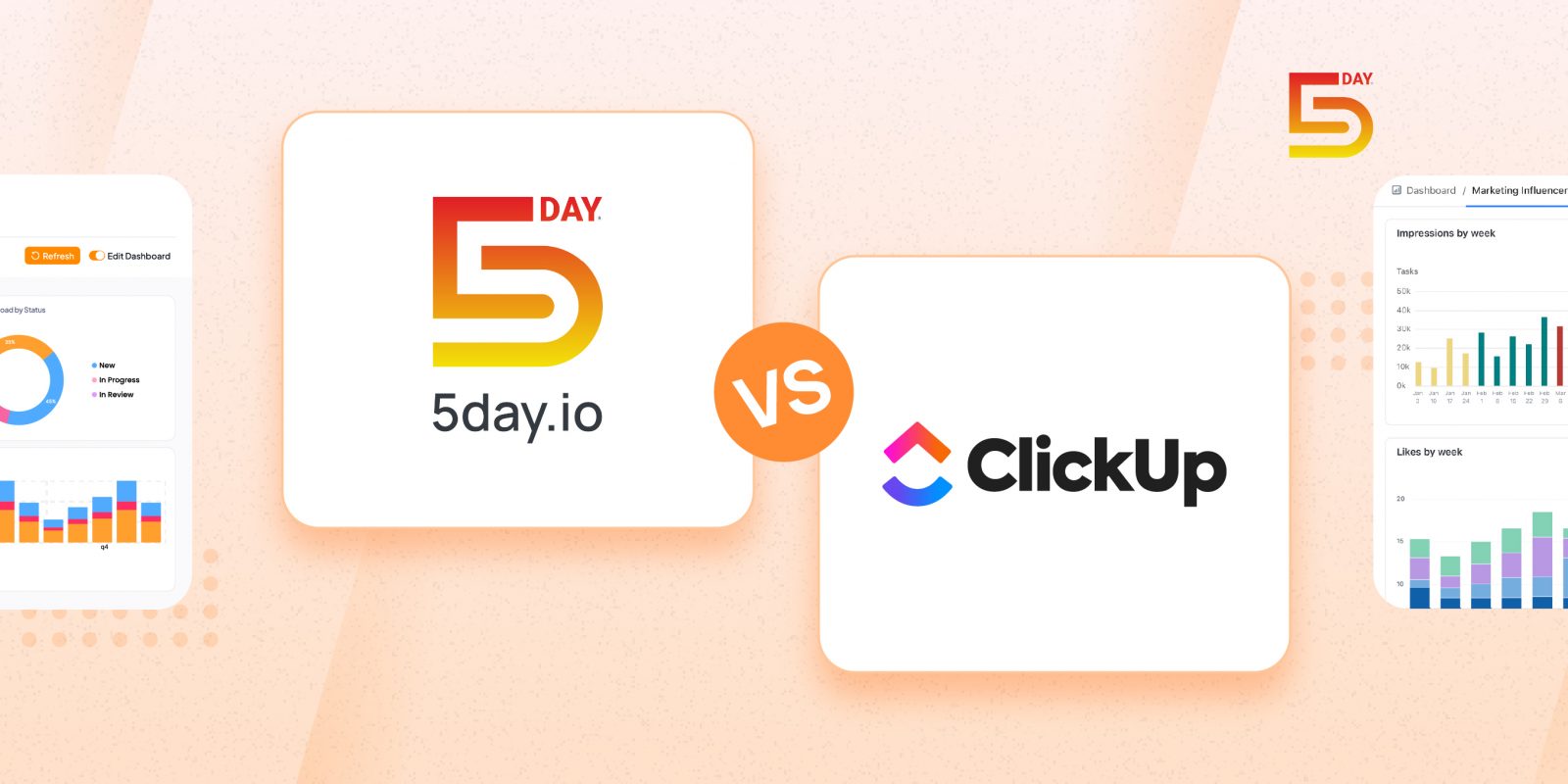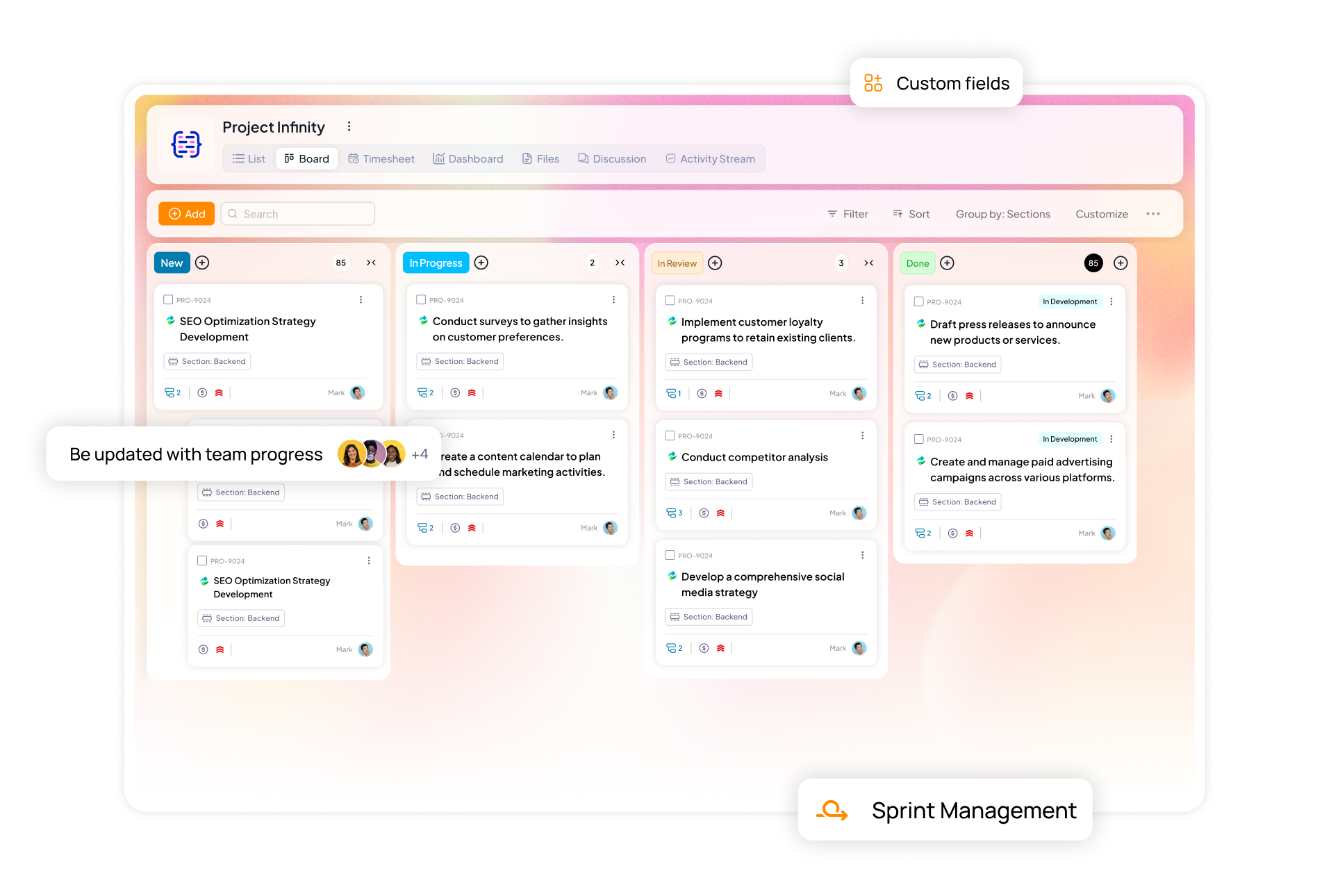Experienced marketing leaders understand that every operational inefficiency, no matter how small, can impact the bottom line. It’s with this understanding that we address a common, yet often unexamined, culprit of hidden costs and revenue leakage: the humble spreadsheet-based time tracking.
While a go-to for many small to mid-sized businesses (SMBs), the spreadsheet timesheet system isn’t without its risks. What perhaps began as a simple solution for agency time tracking has evolved into a source of constant frustration, draining hours and valuable insights.
In this article we’ll uncover the strategic alternative to spreadsheet timesheets: a dedicated project management time tracking tool designed specifically for a creative agency time tracking environment.
By the end, you’ll see how embracing a robust project management for marketing agency time tracking solution is a critical step toward maximizing value delivered to the client.
How manual spreadsheet time logging steals your team’s creative hours
Time is the ultimate asset, no matter the size, scale, or industry of the agency. Yet many people continue to use manual spreadsheet for time logging. This has several disadvantages, starting with a “Context-switching tax”. This tax is levied on your most valuable resource: your team’s focus. Relying on spreadsheets for time logging does more than just wasting a few minutes here and there. It undermines the insights needed for high-quality strategy.
Here are some of the many, many ways in which this practice takes more than it gives.
Cost of interruption
The state of high focus a.k.a deep work is required for complex problem . But it is easily disrupted when your team must manually log time in a separate spreadsheet and jump back on a tool to see what to do then go and do it in a 3rd place. This interruption has a triple cost:
- Lost momentum from interrupting their flow
- Time to accurately recall their previous hours
- Ramp-up time, i.e. the 15-25 minutes it takes the brain to fully re-engage with the original task
This cycle takes a routine admin task and turns it into a constant drain on your team’s overall productivity.
The after-the-fact data problem
Because manual time entry is usually done after the fact, it can lead to serious business concerns. First things first: hours are frequently estimated or rounded. The result is inaccurate profitability reports based on unreliable data.
Additionally, managers waste valuable time chasing down missing sheets, while billing cycles are unnecessarily delayed.
Switching to an integrated solution such as 5day.io means you do away with these disruptions. You get to integrate time logging directly on the task and subtask level, ensuring your agency has accurate data.
Inaccurate capacity planning
We already know that a spreadsheet only shows after-the-fact hours. It also lacks the intelligence of a dedicated system, namely the ability to forecast future workload and staff capacity.
Managers must rely on guesswork when taking on new projects because there is no real-time data on project timelines or remaining budget. This frequently results in either over- or under-commitment from your team. The first leads to burnout and poor creative output, while the second results in a loss of billable revenue.
Strategic advantages of a project management tool for marketing agency time tracking
Moving away from manual spreadsheets is a fundamental change in how an agency operates. Time is a finite resource, and how you manage it directly affects your agency’s profitability and scalability.
A dedicated project management tool transforms time tracking from a reactive administrative task to a proactive business intelligence asset. It does so by linking each hour worked to specific projects and budgets, providing visibility into project health, team workloads, and profitability.
This shift in strategy unlocks a set of critical advantages that extend far beyond automated data entry. Replacing manual processes with a smarter system empowers your marketing agency with the following benefits.
Actionable intelligence
Spreadsheets may be useful for keeping track of hours worked in the past, yet they provide little real time data. As noted above, a modern project management time tracking tool does more than simply record hours. It also links them to projects, tasks, and budgets.
This data centralization creates a unified dashboard that allows you to instantly view project health, track budget burn rates, and identify potential bottlenecks before they impact deadlines.
Better client relationships
It takes time tracking from being an onerous task to being an effective tool for client communication and satisfaction.
With dedicated agency time tracking software, vague billing summaries can finally become a relic of the past. You can provide clients with detailed reports that clearly show where their investment is going.
The granular visibility, down to specific tasks and team members, validates your invoices as well as reinforces your agency’s unwavering transparency. The eventual result is long-term client trust.
Single source of truth
The largest hidden cost of a spreadsheet-based system is data fragmentation. Time tracking is in one file, project tasks in another, and communications in a third.
But when you bring in comprehensive marketing project management software, all these elements come together. Teams log time directly against the tasks they are assigned to, resulting in consistent records.
This integration also does away with the frustration of cross-referencing multiple documents and ensures that each team member is working from a single source of truth.
Key considerations when choosing a time tracking solution
Once you have the buy-in from key stakeholders about transitioning from spreadsheets, the next step is to choose the best agency time tracking solution.
The market is brimming with options, so simply comparing features will not help you find the most suitable solution for your agency. The idea here is to find a tool that integrates well with your current workflow and provides the strategic insights your team needs.
Here are the main considerations you must factor in when evaluating project management time tracking tools.
Integration with your existing stack
A good time tracking for marketing agencies solution should not necessitate a complete overhaul of your existing technology stack. So, look for a tool that integrates with your existing platforms, such as project management tools or communication apps, without causing a fuss. This reduces friction and goes a long way in ensuring smooth adoption.
Access to actionable insights
As evidenced by numerous reports, a manual spreadsheet time tracking system is prone to human error. Then, the solution you ought to be looking for is one with user-friendly dashboards that provide real-time insights into key metrics. The ability to visualize your data without requiring manual manipulation allows you to confidently justify pricing and scope future work.
Intuitive design
A creative agency time tracking solution is only as good as its users, regardless of how powerful its features are. So, look for tools where interfaces are clean and effortless. An intuitive design reduces administrative burden and lowers the possibility of human error and inaccurate data.
Scalability
Your chosen agency time tracking tool should be able to scale with the business. An SMB requires a partner; not just a vendor. Other factors you need to keep in mind are flexible pricing models, strong customer support, and a track record of releasing new features. This ensures that your current investment will be valuable in the years to come.
Why 5day.io is ideal for marketing agency time tracking
Finding a tool that meets the unique needs of your company’s marketing function is not easy. Fortunately, 5day.io comes in quite handy. Did you know that the average employee spends 7.5 minutes per day filling out timesheets? With 5day.io’s auto timer, this is reduced to three minutes per day.
The 5day.io solution transforms fragmented workflows and data into a streamlined process. 5day.io’s timesheet software allows you to set guidelines so that time entries are in accordance with the company’s mandate. This also greatly reduces the opportunity for errors.
Transitioning from spreadsheets to a modern project management platform is about helping your team work better. More importantly, it’s about fostering a collaborative and agile team culture. This matters because these factors are the foundation of your team’s ability to respond to change quickly and transparently.
So, bid adieu to time-keeping spreadsheets and graduate to a project management software. As you can see, the risks of the old ways are way too many. Not only that, but the benefits you stand to gain are well worth the effort.
Ready to try 5day.io? You should; it is completely free for 30 days. No credit card is needed whatsoever.





